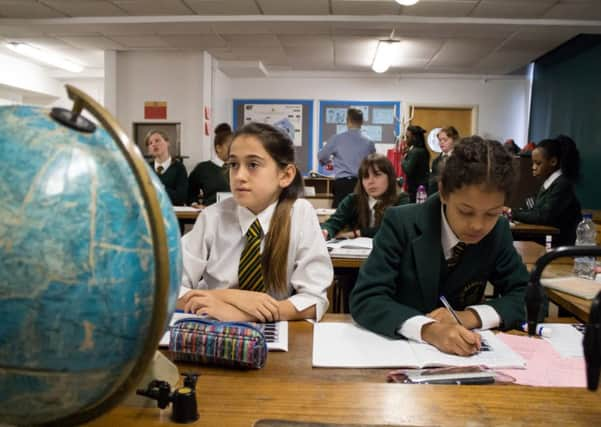Central Beds schools are letting down poorer pupils says Ofsted boss


This appalling statistic needs urgent attention. Most concerning is the disparity between children from poor backgrounds and their more affluent peers.
In Central Bedfordshire, the gaps at both primary and secondary level are above the national average. One of the worrying trends identified in our recent Annual Report is how the attainment gap between disadvantaged children at the age of 11 and that of their more affluent classmates continues and widens by the time children leave school at 16.
Advertisement
Hide AdAdvertisement
Hide AdPublished results for 2015 show, once again, that children make a solid start in Bedfordshire schools. By the age of seven, local children do better overall in their reading, writing and mathematics than pupils nationally. However, in Year 3 to Year 6, progress for all pupils slows. Pupils in Central Bedfordshire primary schools make less progress in mathematics and in reading than in any other local authority in the East of England region.
The statistics tell a damning story. Children from poor backgrounds fare the worst. At age 11, only 55% of children on free school meals achieve the minimum standards expected in reading, writing and mathematics, compared to 81% of pupils from more affluent families
The gap between ‘haves’ and ‘have nots’ widens as pupils move from primary to secondary school, where just 24% of disadvantaged pupils attain the minimum five GCSEs at grades A* to C, compared with nearly 60% of their peers.
The question then, is what can be done to turn this around? We need strong leaders who will focus relentlessly on ensuring all pupils do well, regardless of their background. All schools need leaders who espouse an ambitious vision. One that is shared by staff and pupils alike, which drives improvement by making sure children whose families are economically disadvantaged do not suffer educational disadvantage. If a school focuses on its most vulnerable children then generally all children in a school will do well.
Advertisement
Hide AdAdvertisement
Hide AdOfsted will be monitoring schools and how effective they are at supporting disadvantaged pupils. Schools are given additional funding for children on free school meals and we will want to see how this money is used to effectively close the attainment gap between ‘haves’ and ‘have nots’. Only by eradicating this gap can we ensure that these children get the life chances that they deserve.